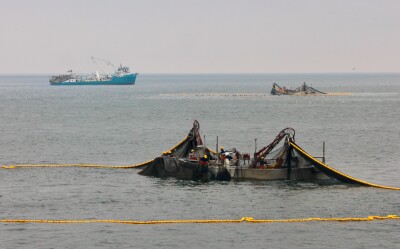The first in a series of nationwide public workshops to discuss revisions to the Magnuson-Stevens Act is taking place today, Tuesday, Feb. 11 at Seattle's Renaissance Hotel. And if anyone asks you why the act that governs U.S. fishery management requires tweaking, tell them they need look no further than a report examining the economic performance of Northeast groundfish vessels in 2012.
On Jan. 23, NOAA Fisheries released its third annual report regarding the economic performance of active Northeast groundfish vessels under the catch shares program first implemented in May 2010. And it paints a bleak picture of the fishery's performance in 2012.
The report found that groundfish landings had fallen 24.9 percent from 2011 to a four-year low of 46.3 million pounds. Likewise, groundfish revenues also fell to a four-year low of $69.8 million, a 22.9 percent drop.
Groundfish revenues by landed port state declined for Massachusetts, New Hampshire and Rhode Island, with Massachusetts and New Hampshire seeing four-year lows in revenue. Groundfish revenues increased in Connecticut, Maine, New Jersey and New York; all but New York experienced four-year highs in revenue.
Moreover, fishing effort generally declined in 2012, the report states. Fewer groundfish and non-groundfish trips were recorded.
And the number of active groundfish vessels continued to shrink. The number of vessels with revenue from a groundfish trip slipped 4.3 percent from 2011, and has tumbled 29.2 percent since 2009.
What's even more sobering is realizing that the report doesn't reflect further declines seen in 2013, says Brian Rothschild, president of the New Bedford, Mass.-based Center for Sustainable Fisheries.
"The data is a year old — this year is worse than the year before," Rothschild says.
The report's findings indicate changes must be made to reverse those declining trends, he adds.
"To solve the problem of not catching quotas, we have to know why that is; there are several possible causes," Rothschild says. "Some people jump to the conclusion that it's lack of fish, but that's not a safe conclusion to make without looking at other factors, like to what extent do regulations prevent the capture of fish."
The Center advocates revising Magnuson-Stevens to strengthen the economic component of fisheries management, giving the regional management councils greater flexibility, and facilitating better science. They're changes that can benefit fisheries all over the country, not just New England.
"We have the tools to turn things around, but the agency isn't doing it," Rothschild says. "That's why we think the Center is advocating the right thing."
The Center and National Fisherman are co-sponsoring the series of Magnuson-Stevens public workshops kicking off today in Seattle. Those workshops will kick-start a discussion that's well-worth having. And we invite you to be a part of that conversation.
Photo: Fishing vessels tied up at the dock in Point Judith, R.I.; Linc Bedrosian photo







